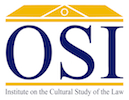Workshop 3
Real and Performative Properties: Competing Claims to Citizenship, Indigeneity, and Land
Convenors: Beth Piatote, Sabine N. Meyer
Scholars from various disciplines have long asserted the central role of property in the colonization of the North American continent and the emergence of the United States. The transformation of indigenous lands into private and federal property has been identified as a foundational aspect of American empire-building. Not surprisingly, debates about real property – land – dominated the relationship between Native Americans and the settler nation, particularly in the nineteenth century, in the context of the federal policies of removal and allotment. While the struggle over real property remains the bedrock of Native-settler relations, as the Standing Rock protests demonstrate, it has also generated conflicts over other, more metaphorical “properties,” such as the properties of citizenship (both tribal and U.S. citizenship) and indigeneity as such.
This workshop has a twofold objective. First, it encourages participants to reflect on the physical and metaphorical meanings of property and to discuss the intricate relations between the two, as well as their role in the formation of the settler nation. Second, it explores the significance of real and performative properties for the study of Native American literature. How do debates about property inflect Native American literary practices? And what role does Native American literature play in the negotiation of “claims”: claims to citizenship, indigeneity, and land. Methodologically, the workshop will take a law and literature approach, pairing short stories and non-fiction essays by Native American writers with relevant historical and legal texts.
- WS 1:Claiming Interdisciplinarity in Cultural Legal Studies
- WS 2: Claiming the Past, Belonging for the Future / Immigration, Citizenship, and Property
- WS 4: Cultural Productions, Contentious Properties
No responses yet

